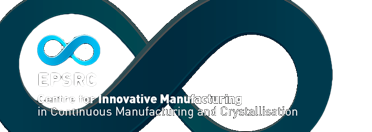DTC Students 2012 Cohort
Juliet Adelakun
 Supervisor: Professor Xiong-wei Ni
Supervisor: Professor Xiong-wei Ni
Home University: Heriot-Watt University
Title of project: Characterisation of Profiles and Steady States in a Continuous Oscillatory Baffled Crystalliser (COBC) using Cooling Crystallisation Process
Project outline: In order to gain better understanding and control over melt crystallisation in a continuous crystalliser, the understanding of the evolution of concentration and crystal size distribution profiles along the length of the crystalliser is essential for the robust operation and confident prediction of the product quality. The objectives of this project are therefore to examine steady state and stability in a melt crystallisation process; investigate the effects of high viscosity and close melting points on the control and operation and to establish parameters affecting the efficiency of continuous filtration.
Key words relating to project: Continuous crystallisation of melts, Baffled crystalliser, COBC, steady state
Georgi Aleksiev
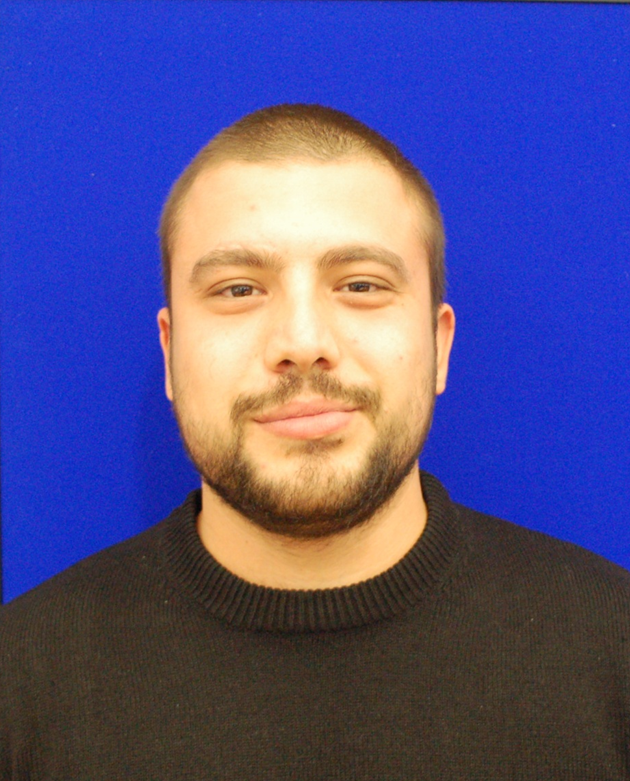 Supervisor: Professor Umit Bititci
Supervisor: Professor Umit Bititci
Home University: University of Strathclyde
Title of project: Exploring supply network reconfiguration opportunities arising from more continuous processing in Pharma, Understanding Supply Chain of Continuous Manufacturing Processes; Taking Sustainable perspective into the Pharmaceutical Business.
Key words relating to project: CMAC, Supply Chain, Sustainability, Sustainable, Green, Operations Management, Continuous Manufacturing, Lean Pharm, Six Sigma, Sustainable Pharmacy, Waste Management, Innovatio.
Natalia Dabrowska
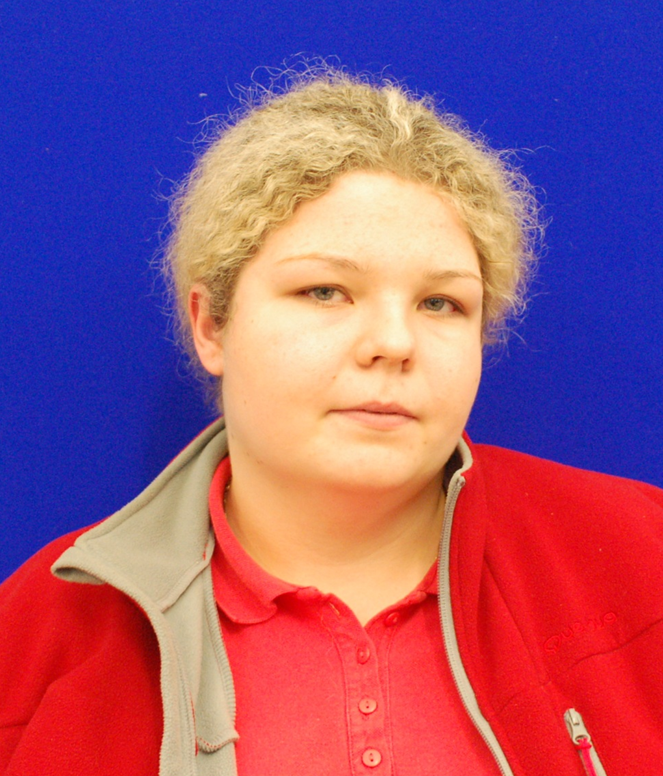 Supervisor: Professor David Littlejohn, Dr Alison Nordon
Supervisor: Professor David Littlejohn, Dr Alison Nordon
Home University: Univeristy of Strathclyde
Title of project: Precise Temperature Control and Use of Enthalpy Measurements During Crystallisation of L-glutamic acid in a batch Co - Flux reactor.
Project outline: The aim of this project is to carry out crystallization of L-glutamic acid (LGA) in a 4 L Co-Flux reactor and compare the crystal features (polymorph, particle size) to the results obtained for LGA using other reactor types. The Co-Flux has a series of separate coils for the heater fluid rather than a single jacket to control temperature. This modified heat transfer system allows better control of temperature during the process. Comparison of the results obtained using the Co-flux reactor with the results obtained during the crystallization of LGA in stirred tank and OBR reactors will determine the effect of temperature control on crystal size distribution or polymorphic form. Furthermore, details of enthalpy changes can be obtained from the system which may allow additional monitoring and investigation of the crystallization process.
Key words relating to project: Control, crystallisation, Co-Flux reeactor, polymorphs, particle size.
Rebecca Halliwell
 Supervisor: Professor Alastair Florence
Supervisor: Professor Alastair Florence
Home University: University of Strathclyde
Title of project: Lab scale continuous crystallisers for control of pharmaceutical polymorphs and critical particle attributes
Project outline: Research will aim to investigate the spray drying technique for continuous pharmaceutical crystallisation so that the process can be fully optimised to produce particles with the desired attributes. Initial experiments will begin with small organic model compounds to determine the degree of process control and the resulting impact on particle attributes such as moisture content and particle size. Design Of Experiments (DOE) will be applied to accelerate understanding of the technique and investigations into more complex compounds and possible mixtures is targeted for later studies. This work aims to link continuous crystallisation from spray drying with the secondary formulation of pharmaceutical compounds.
Key words relating to project: Lab-scale crystallisation, spray drying, particle attributes.
Anneke Klapwijk
Superv 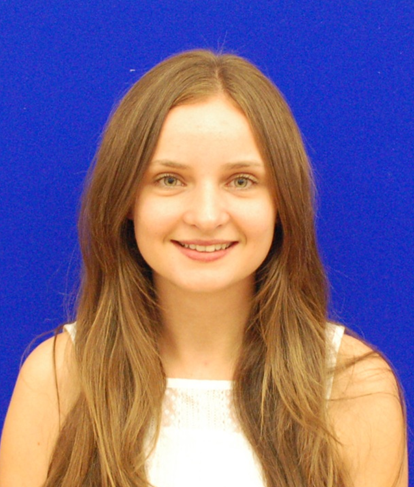 isor: Professor Chick Wilson
isor: Professor Chick Wilson
Home University: University of Bath
Title of project: Inducing layered solid-forms and controlling defects in multi-component continuous crystallisation
Project outline: Research will targets the introduction of disorder defects in molecular materials for enhanced physical properties, such as solubility and compressibility. Development of appropriate defect materials - produced and controlled in the multi-component crystallisation environment - will be carried out in parallel with transferring these into the continuous crystallisation environment.
Key words relating to project: multi-component systems, crystal defects, crystallisaiton control.
Fraser Mabbott
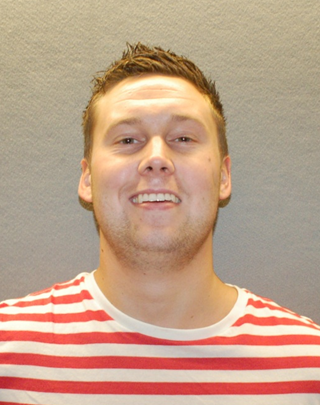 Supervisor: Professor Alastair Florence
Supervisor: Professor Alastair Florence
Home University: University of Strathclyde
Title of project: Investigating the Effect of Different Manufacturing Materials Upon Crystallisation Fouling
Project outline: The principal aim of the project is to investigate a selection of different materials and the effect they have upon crystallisation fouling. The materials which were selected include stainless steel, Hastelloy, glass, PTFE and PEEK, all of which are commonly encountered materials within manufacturing industries. The two compounds to be investigated are paracetamol and L-glutamic acid which are both acknowledged to foul at certain conditions. Analytical techniques which will be conducted in this project include contact goniometry, raman microscope and atomic force microscopy.
Key words relating to project: crystallisation, fouling, AFM.
Laura Martinez Marcos
 Supervisor: Professor Gavin Halbert
Supervisor: Professor Gavin Halbert
Home University: University of Strathclyde
Title of project: Influence of solid form properties on formulation and extrusion processing
Project outline: The project will comprise the application of hot-melt extrusion process to manufacture solid dosage forms. Nowadays, Pharmaceutical industry efforts are focused towards the bioavailability improvement of poorly soluble drugs. Hot-melt extrusion has proved successful results by increasing the dissolution rate and therefore, oral bioavailability. One of the main applications comprises continuous granulation, where the API and polymers of different viscosities are processed under high temperatures and pressure conditions to obtain granules of specific properties. The combination of the processing parameters with the intermeshing mixing capacity delivered by the twin screw extruder establishes a feasible method towards continuous processing of pharmaceutical products.
Key words relating to project: Hot-melt extrusion, formulation, continuous granulation, poorly soluble drugs.
Iyke Onyemelukwe
 Supervisor: Professor Chris D. Rielly and Professor Zoltan K. Nagy
Supervisor: Professor Chris D. Rielly and Professor Zoltan K. Nagy
Home University: Loughborough University
Title of project: Comparative Investigation of Continuous Crystallisation Approaches using Process Analytical Technology
Project outline: I am carrying out a comparative investigation of continuous crystallisation approaches including the Mixed-Suspension Mixed-Product Removal (MSMPR) reactor, and the small-scale Continuous Oscillatory Baffled Reactor (Meso-reactor) with the aid of well-suited PAT tools such as FBRM, ATR-UV Vis, Raman spectroscopy, Near Infra-Red etc. I aim to develop of a crystallisation monitoring and control framework for continuous manufacturing, as opposed to present batch processing, under the supervision of Prof. C. D. Rielly and Prof. Z. K. Nagy.
Key words relating to project: MSMPR, Meso-reactor, Crystallisation, Process Analytical Technology, Pharmaceuticals, Paracetamol, Agrochemicals, Process Systems Engineering.
